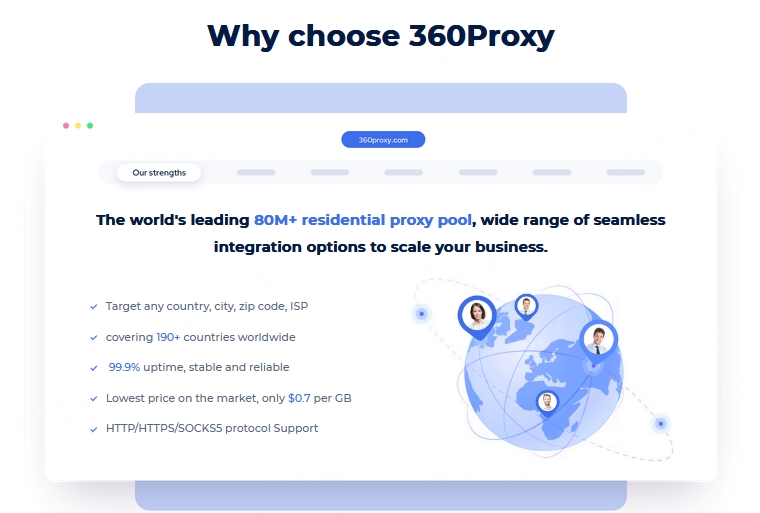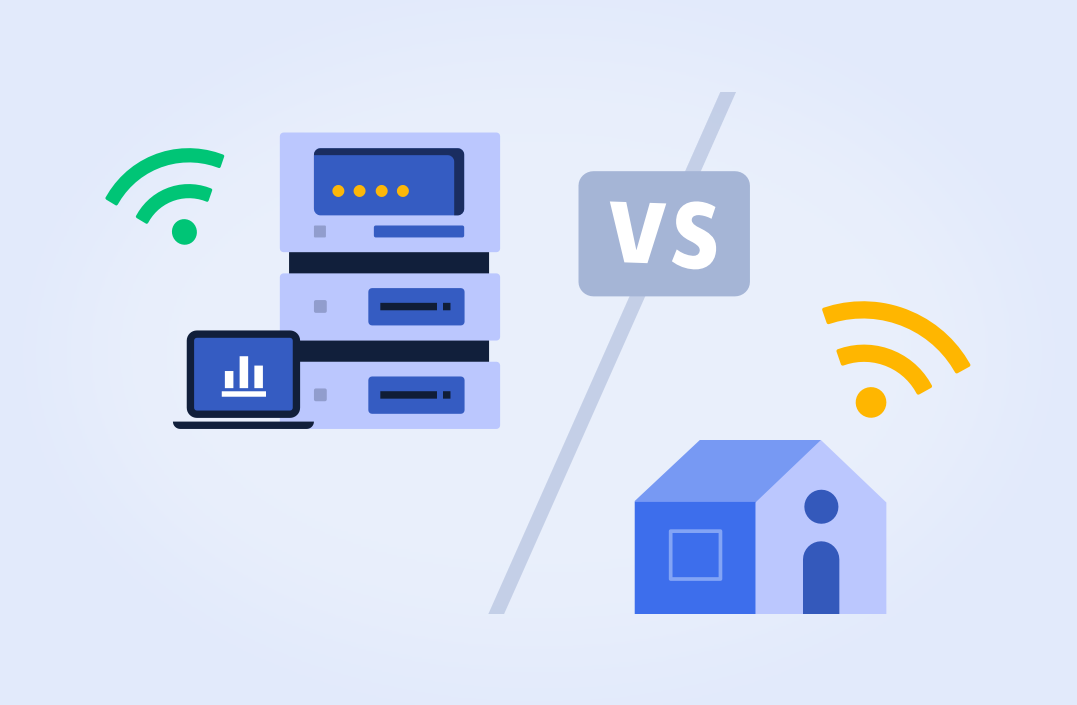In the network field, data center IP and residential proxy IP are two common IP types, with different uses, allocation mechanisms and performance characteristics hidden behind them. This article will provide an in-depth analysis of the differences between the two, as well as the advantages of each.
What are Data Center IP and Residential Proxy IP?
What is data center IP?
Data center IP is an IP address assigned and managed by a professional data center provider. These IP addresses are usually used to support large-scale enterprise-level applications, cloud computing, big data analysis and other business needs. Data center IP has a high degree of stability, professionalism and high-speed transmission capabilities, and is suitable for scenarios that need to handle large amounts of network traffic and data transmission. Since multiple IP addresses may come from the same address block, some websites may treat the data center IP as a proxy service and block it.
What is a residential proxy IP?
A residential proxy IP is an IP address assigned by a person or home’s internet service provider. These IP addresses come from residents' residential networks and are widely used for general Internet activities. At the same time, residential proxy IP are also used for proxy services to achieve some specific goals, such as privacy protection, avoidance of bans, etc. Due to being dispersed in different residential networks, residential proxy IPs have high anonymity and are difficult to identify as proxy services.
Data Center IP vs. Residential Proxy IP: Understanding the Differences
Differences in use
Data center IP: Data center IP is mainly used for enterprise and server operations. They are centrally allocated by data center providers and are typically used for large-scale data transmission, server hosting, and cloud computing.
Residential proxy IP: Residential proxy IP originates from a personal or family Internet service provider. It is widely used for general Internet activities and becomes the source of proxy services for privacy protection, access control and other purposes.
IP allocation mechanism:
Data center IP: Data center IP is centrally allocated by the Internet Service Provider (ISP), and multiple IPs may belong to the same address block.
Residential Proxy IP: Residential Proxy IP are assigned independently by each home or individual's Internet service provider, and each IP address corresponds to a specific residence.
Stability and anonymity:
Data center IP: Data center IP usually has a high degree of stability and availability, but because multiple IPs share the same address block, it may be regarded as a proxy service by some websites and banned.
Residential proxy IP: Since residential proxy IP is dispersed in different residential networks, it is more difficult to be identified as a proxy and has higher anonymity. However, its stability may be affected by your home network.
Speed and latency:
Data Center IP: Data Center IP typically offers faster speeds and lower latency and is suitable for large-scale data transfer and processing.
Residential Proxy IP: Residential Proxy IP speed and latency may be limited by residential network load and bandwidth and fluctuate slightly compared to data center IP.
Price and availability:
Data center IP: Data center IP is usually more expensive due to its professionalism and higher performance, and the cost is higher for general users.
Residential proxy IP: The cost of residential proxy IP is relatively low and easier to obtain, suitable for individual users or small-scale proxy needs.
Comparison of advantages: When to choose which IP?
Advantages of data center IP:
High stability: Data center IP is managed by professional data center providers, so it has high stability and availability.
Suitable for large-scale business: Due to its high speed and low latency, data center IP is suitable for business scenarios that require large-scale data transmission and processing.
Advantages of residential proxy IP:
Anonymity: Since residential proxy IP are dispersed in individual residential networks, they are more difficult to identify as proxies, providing higher anonymity.
Avoid bans: Due to its good stability and difficulty in being blocked, residential proxy IP is suitable for situations where website bans need to be avoided.
Cost-effectiveness: Residential proxy IP is relatively cheap and suitable for small-scale proxy needs or individual users.

In summary, data center IP and residential proxy IP each have their own merits, and choosing the appropriate IP type depends on specific needs. If you need anonymity and block-breaking scenarios may be more suitable for residential proxy IP; then 360Proxy is a great choice! 360Proxy has a pool of 80 million+ residential agents, supports resources in 190+ countries and regions around the world, and can accurately locate the required areas; it has high guarantees on anonymity and connection!
 Username: Password
Username: Password
 Whitelist IP
Whitelist IP
 Proxy Manager
Proxy Manager
 Google Chrome Extension
Google Chrome Extension





























 Dashboard
Dashboard Sign Out
Sign Out






























 USA
USA France
France Brazil
Brazil Vietnam
Vietnam Spain
Spain









